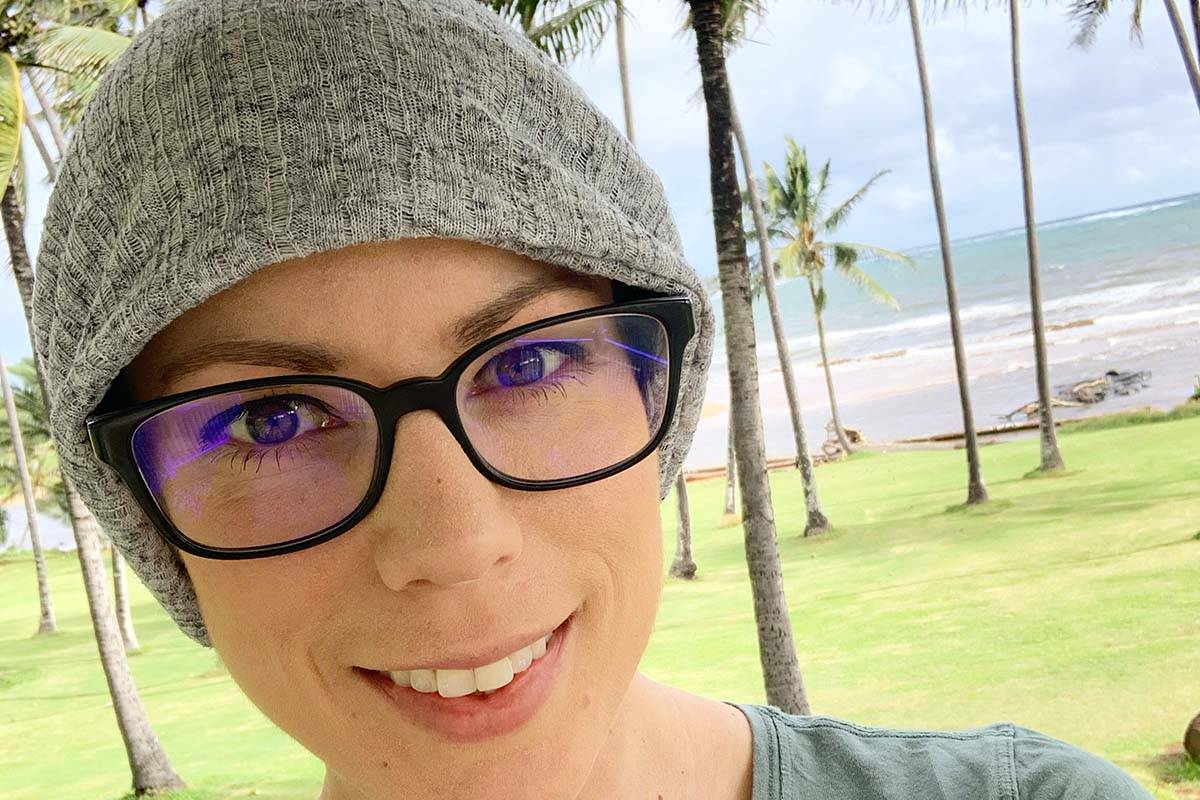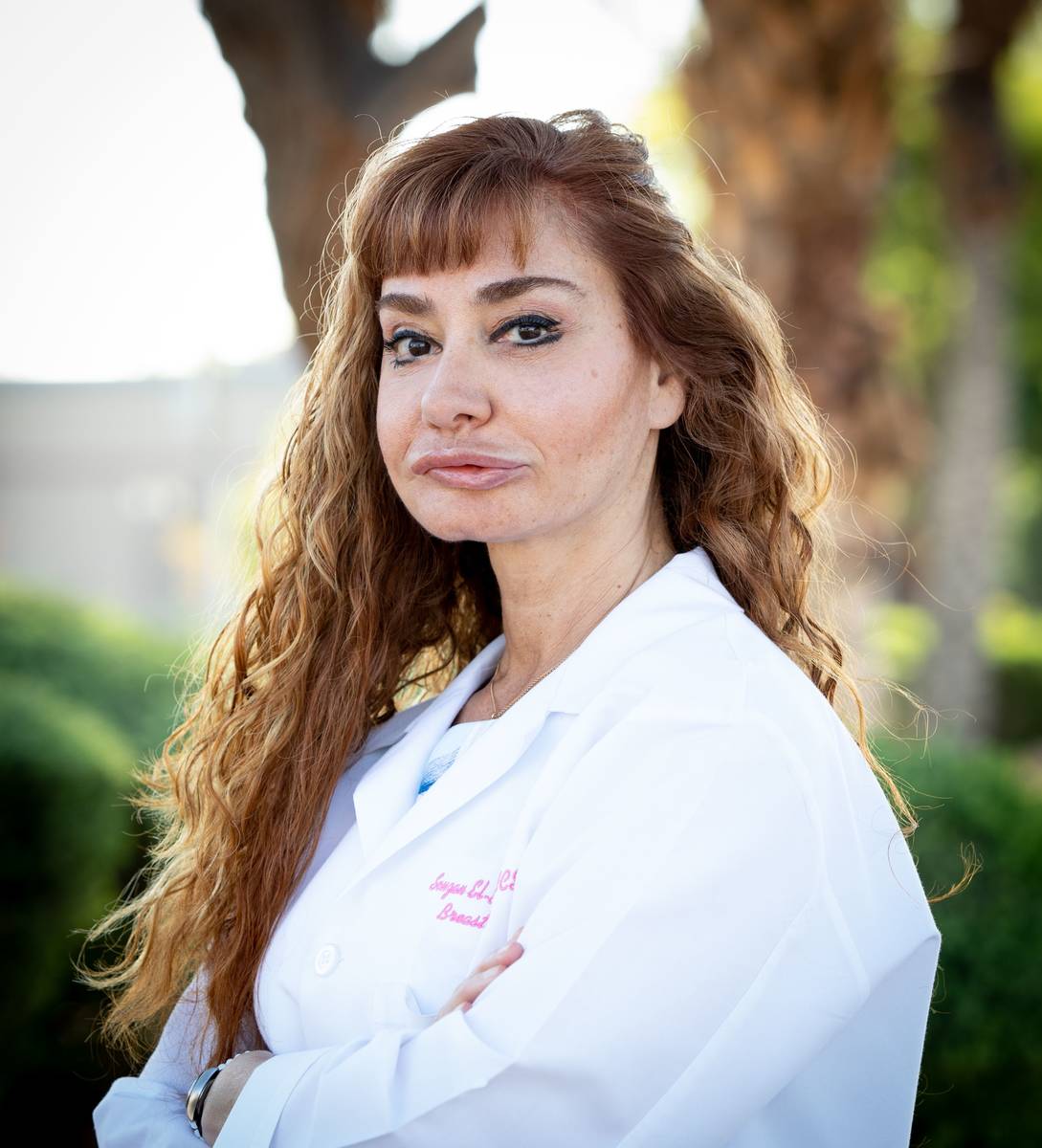33-year-old battles aggressive cancer
Melissa Peters and her husband, Jake, had just returned from a trip to Europe in September 2019 when she noticed an unusual lump in her right breast.
“Unfortunately, I kind of blew it off for a couple of weeks. I thought it was weird but no big deal,” said Peters, who was 32 at the time.
Her doctor thought it was most likely a cyst but wanted her to get a mammogram and a sonogram just in case. He called her the same day that she had the tests.
“He told me he was sending me to Dr. El-Eid at the Comprehensive Cancer Centers of Nevada, and when I asked why, he said she would discuss it with me then,” Peters said. “I was supposed to pick up my images before that appointment and, of course, I did what you’re always told not to do — I started Googling every one of the medical terms I read in my imaging report.”
It didn’t take her long to learn that the doctor suspected cancer.
Upon meeting Souzan El-Eid, M.D., in October 2019, Peters immediately respected the breast surgeon’s honesty. The biopsy showed that the tumor was a golf-ball-sized lump but was only in one breast and one lymph node.
“She was just what I needed in that moment,” Peters said. “She didn’t sugar-coat anything but rather explained my cancer and the plan of action we would take.”
After going through genetic testing and learning she was not a carrier of the BRCA genes (which often indicate a prevalence toward breast cancer susceptibility), Peters endured six rounds of IV-administered TCHP chemotherapy.
Each of the medications (Taxotere, carboplatin, Herceptin and Perjeta) in this formula is designed to kill cancer cells or slow the growth of breast cancer cells. Her chemo lasted from November until April and ended just as COVID-19 was getting serious attention in the United States.
“I had planned to have a double mastectomy with immediate reconstruction on April 15,” Peters said. “As I was driving home from working remotely the night before my surgery was scheduled, I really didn’t feel well. The day was hot and I couldn’t wait to get home and change into cooler clothes.”
As she was changing, she had a seizure and woke up as she was being transported to the hospital.
“I’d never experienced anything like this before,” she recalled. “After sitting in the emergency room by myself, because of COVID, I was admitted and learned that the cancer had metastasized to my brain.”
The development of 24 lesions in her brain had not shown up on any of her previous scans.
“Although it was so crazy, it was actually a blessing, too,” Peters said. “If it hadn’t happened that night, I would still have gone through with surgery the next day and could have seized on the table. … Who knows what might have happened then.”
She was released from the hospital once doctors knew she wouldn’t suffer another seizure.
“Melissa’s type of cancer, HER2-positive, is very aggressive in younger women,” El-Eid said. “It’s a different beast in young people in that it keeps wanting to come back, and that’s exactly what it did in this case.”
Since a double mastectomy surgery would take five to six hours at a minimum, the original plan was off the table. Not wanting to waste any valuable time, El-Eid had Peters begin whole-brain radiation to see what could be done about the lesions. Although there’s been no further growth in them since April, Peters undergoes monthly brain scans.
Peters still wanted to get the “mother tumor” out so, with El-Eid’s approval, she scheduled a lumpectomy May 13 with the removal of one lymph node. Because of the chemo, the original tumor had shrunk to more than half its size.
“I really have appreciated how Dr. El-Eid listens to me,” Peters said. “She understood what I was going through and did her best to come up with a treatment plan that I felt was in my best interest. I just love her so much.”
Peters is now part of the HER2CLIMB clinical trial, which is studying the effects of a drug called tucatinib in patients with HER2-positive breast cancer and brain metastases.
“I’m taking oral chemotherapy for this because this medication has the ability to break the brain barrier,” she said. “I could be taking this indefinitely as long as I continue not to experience side effects.”
While Peters’ case is unusual in that she isn’t even old enough to have started having annual mammograms, she believes that perhaps the age to start should be closer to 35.
“I had no other symptoms, other than the weird lump. I know it seems like a strange thing to do self breast exams when you’re young, but it really can save your life. I’m proof,” she said.



















